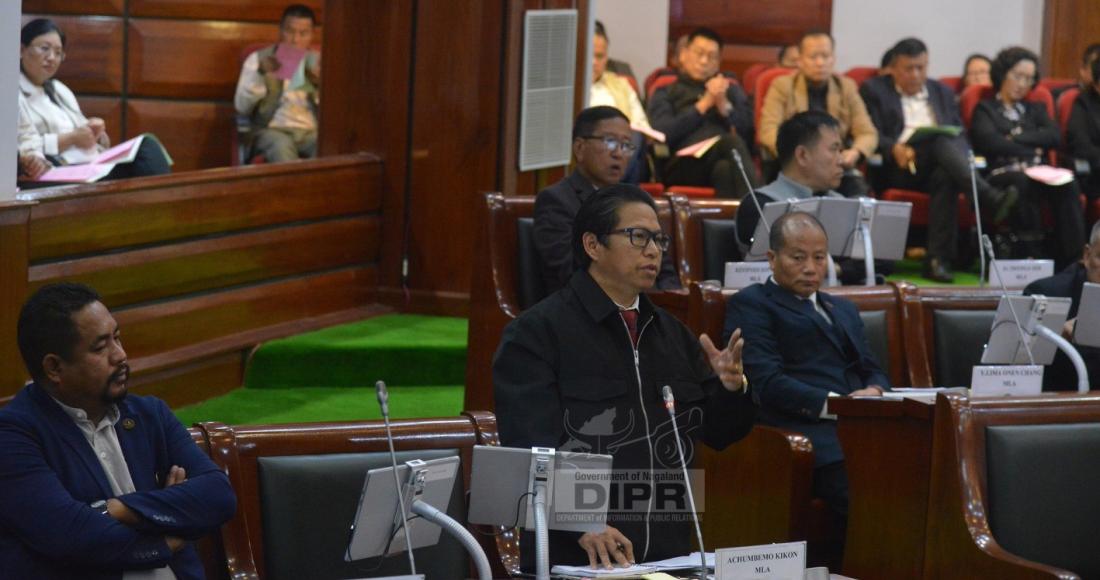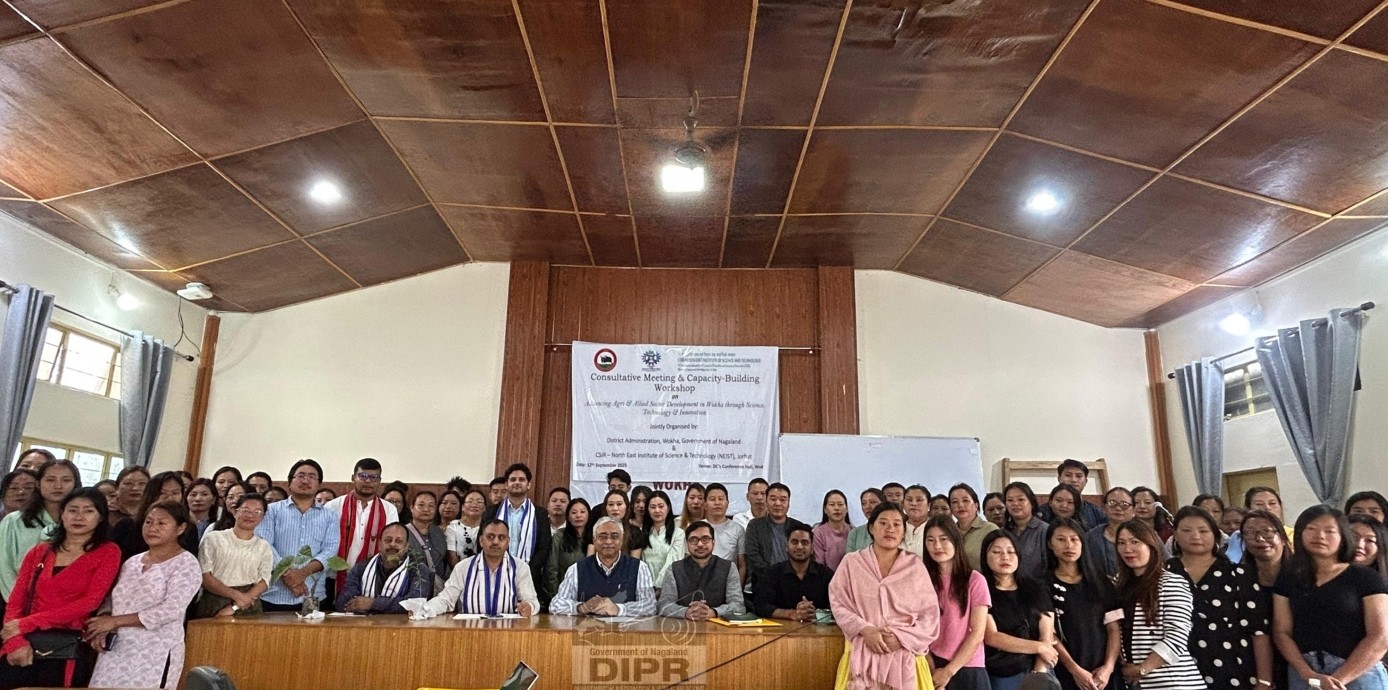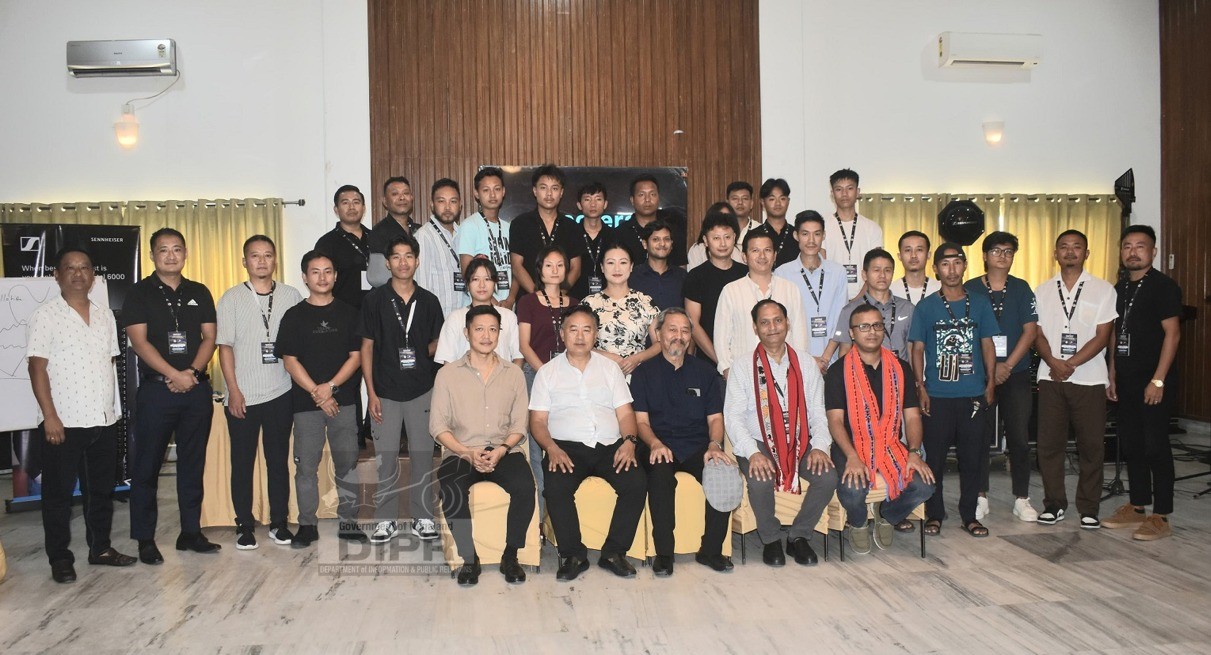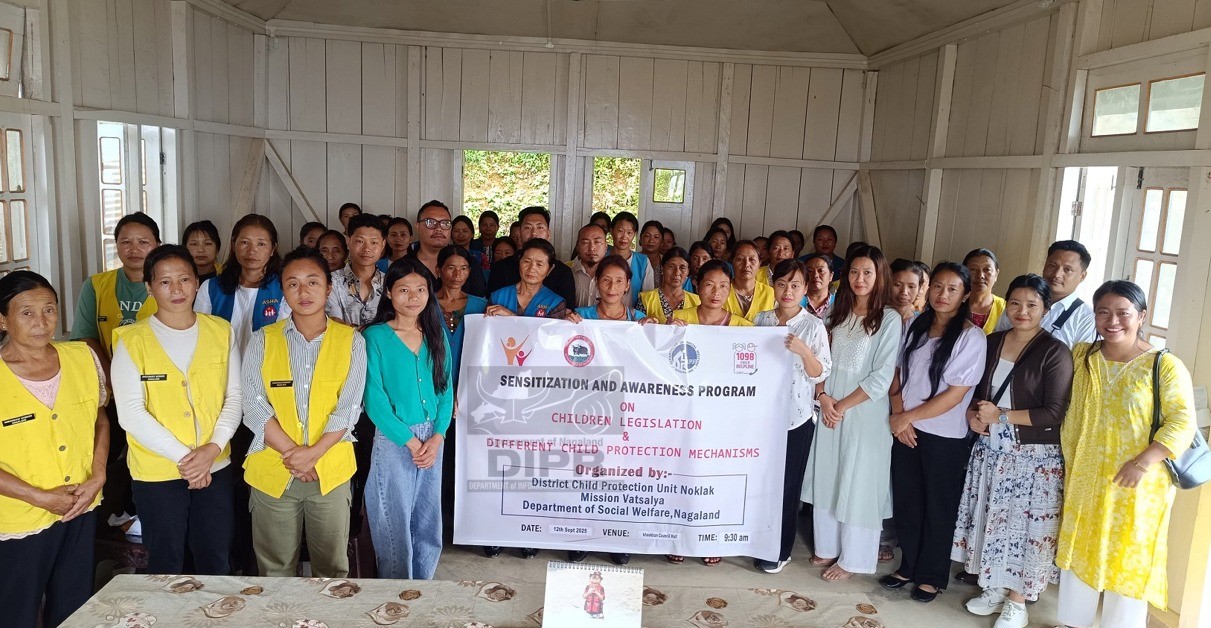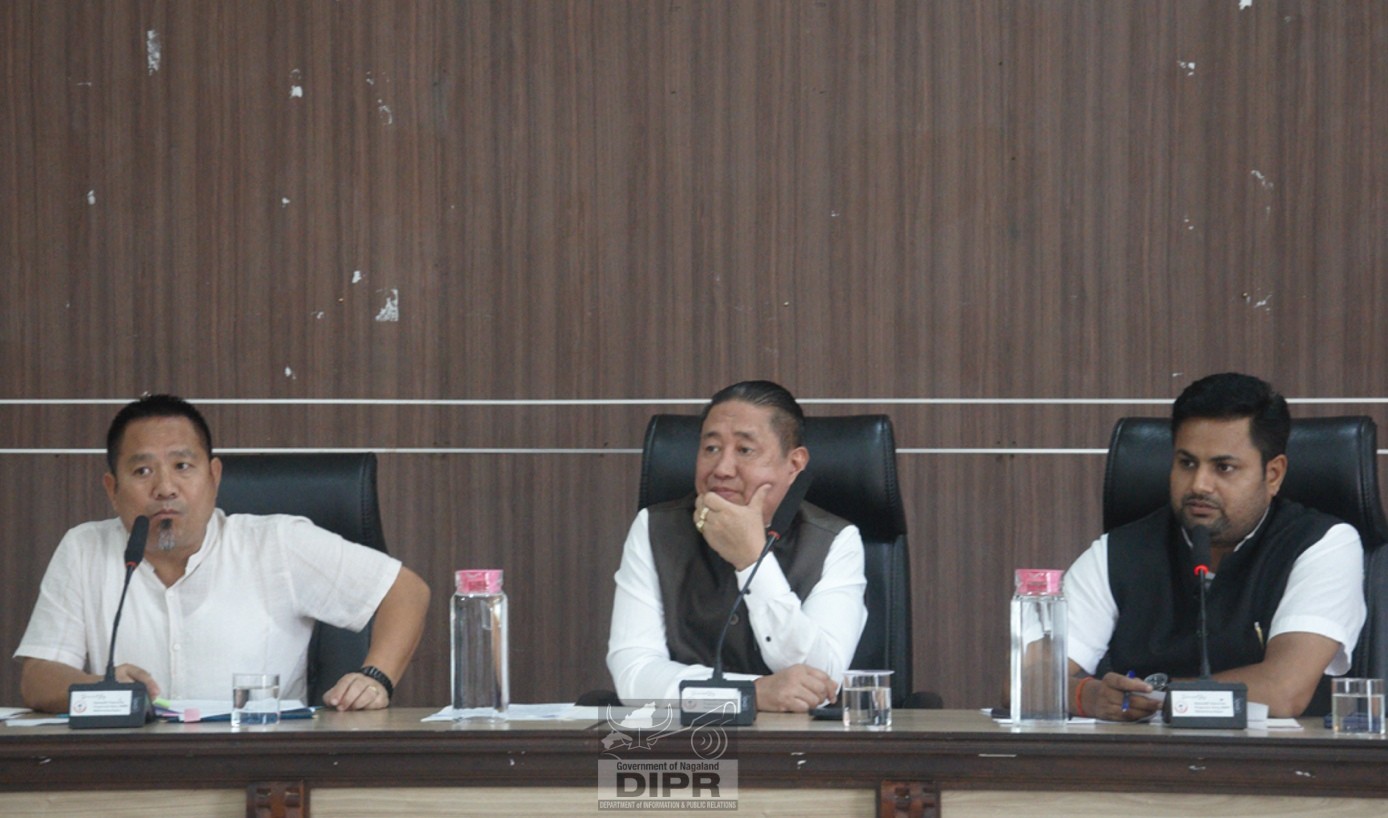Minister, Parliamentary Affairs and Power, K. G. Kenye initiated the discussion under Rule 50 with regard to the issue pertaining to “Mushrooming of Unions & Associations in Nagaland,’ during the third day of the sixth session of the 14th NLA on 8th March 2025. Kenye highlighted the number of registered societies under the Government of Nagaland which currently stands at 7,952, out of which, 5,922 are inactive and a mere 2,030 are active till date. He said that Nagaland as a progressing State, still in its developmental period, is bound to come across various situations and scenarios where certain elements can sometimes hamper the growth of society unconsciously and one such example is the uncountable unions and associations that have mushroomed in Nagaland over the years.
Kenye said that now is the right time for the Naga people to have a reality check and retrospect on our past, where we stand today and where we are headed towards. Stating that forming associations is a natural thing, he however, questioned the purpose and the positive impacts of associations and unions which further lead to divisions in an already fragmented society. He also voiced out against the hyperactive social organizations whose annual activities are proving to be a huge financial burden for its members and leaders as a whole and also said that such activities often turns out to be a waste of precious time for many. He urged the Naga people to be aware of the ever competitive world scenario and to devote our precious resources and time to more productive ventures.
Kenye also stressed on the importance of preserving our culture and traditions but not at the cost of our Naga Unity. He said that our people need to move beyond tribal and religious lines and come together as one and work towards a common goal. He further urged the churches to come together and create a common ground for unity.
Taking part in the discussion, MLA, Achumbemo Kikon talked about the system of forming associations in Nagaland and it being quite different from the rest of India due to its history. Nagas are very much aware and interested in the area of politics and history, he said. Referring to Article 19 (1)(c) of the Indian Constitution guaranteeing citizens the right to form associations, unions, or cooperative societies, Kikon emphasized that the issue needs to be dealt in a careful manner so as to not strangulate the fundamental rights of the Naga citizens. Kikon said, much importance needs to be given to the matter of sensitizing the citizens, creating awareness of the pros and cons of forming unions and associations.
Advisor, Water Resources, Tongpang Ozukum clarified that although the House does not have the authority to make resolutions on the issue, it is mostly to make people aware of the same through its platform. Speaking on the three-day conventions held by various organizations, he recommended lessening it to a one-day affair as done by associations in Ongpangkong Range recently. Ozukum gave credit to the genuine workers for their contribution to the society, and also reminded the House of their responsibility as leaders to continue to sensitize the people on the issue.
Participating in the discussion, MLA, Dr. Sukhato A. Sema questioned the intentions and motives behind the formation of unions and associations, and funds being diverted for personal use and expenditure etc. He said that there is competition among unions for popularity, power and influence leading to division, thereby fostering tribalism instead of unity. He also lamented on churches being divided and the pursuit of building churches in almost every locality, for the want of more power and autonomy. Nagaland today is more divided than ever, and the people are dividing themselves to the road of partition. Formation of unions and associations affects the economic development of the State, and in this regard, he appealed for regulations to keep a tab on such activities. He also appealed for necessary initiatives to engage the youth, especially unemployed youths, in various trainings such as skill labour trainings, handicrafts, games and sports, music and arts etc. to make them economically and financially independent, so as to curb the mushrooming of unions and associations.
MLA, Nuklutoshi cited that almost all the unions and associations function on collections, donations being contributed by the concerned members and well-wishers, which become burdensome. He added that it is important to have unions and associations but without limitations, it will cause hindrance in the society.
Delivering the concluding remarks on the discussion on ‘Mushrooming of unions and associations in Nagaland,’ Chief Minister, Nagaland and Leader of the House, Dr. Neiphiu Rio stated that Unions and Associations must be registered for functioning under Societies Registration Act, 1860 (Government of India Act), and in Nagaland, Home Department is designated as Registrar of Societies under the Act. He added that the purposes for which registration can be done is governed by Section 20 of the Act. As per the Amendments made by Nagaland, registration requires fulfilling different criteria such as submission of form, payment of fees of Rs. 2000, verification report by the concerned EAC/SDO(C), validity of registration for two years as per Section 3A(1) (as inserted by the 3rd Amendment in 2008), registration should be renewed within three months of expiry etc.
Dr. Neiphiu Rio stated that the number of societies in Nagaland given registration till date is 7,952, out of which, 2,064 societies have come for renewal till date, and 244 societies are newly registered (i.e. since 2023). He spoke on the reality of unions/associations spending crores of rupees to hold and conduct meetings, jubilees and other activities. He advised the Home Department to go through the details and to segregate it into different groups/categories, and whether these unions are functioning as per the aims and objectives, activities etc. for the welfare of the people. He mentioned that if there may arise a need for further discussion on the topic, it can be deliberated upon in the August House or in the Cabinet for decisions to be taken in the future.
(Mhonlumi, APRO &, Thungbeni, APRO)


